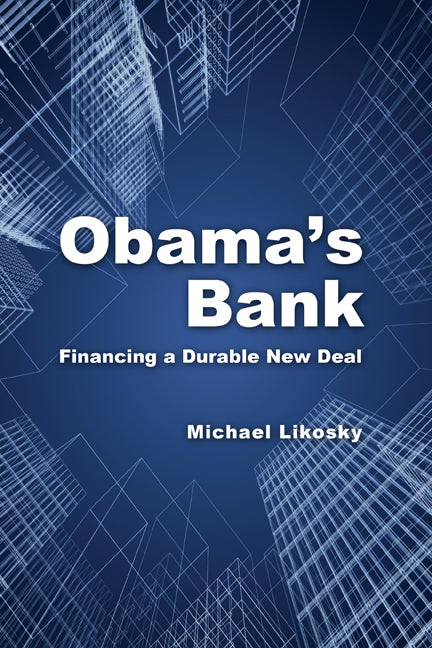Freshly Printed - allow 8 days lead
Couldn't load pickup availability
Obama's Bank
Financing a Durable New Deal
This book describes the Obama administration's plan to partner with the private sector to produce public goods.
Michael Likosky (Author)
9780521147118, Cambridge University Press
Paperback, published 20 September 2010
392 pages
22.9 x 15.2 x 2 cm, 0.53 kg
"The notion of an infrastructure bank for the United States is not new. However, Michael Likosky has done what no one else has: looked at all of the key questions that, to this date, have been unanswered. In Obama’s Bank he issues a challenge to those who have introduced national infrastructure bank proposals: think very practically about what needs an infrastructure bank can efficiently address, focus on getting the details right, and move beyond talking points to action."
- David Chavern, Chief Operating Officer, U.S. Chamber of Commerce
The Obama administration aims to lay a sound foundation for growth by investing in high-speed rail, clean energy, information technology, drinking water, and other vital infrastructures. The idea is to partner with the private sector to produce these public goods. An Obama government bank will direct these investments, making project decisions based on the merits of each project, not on politics. This approach has been a cornerstone of US foreign policy for several decades. In fact, our government-led reinvestment in America is modeled explicitly on international public banks and partnerships. However, although this foreign commercial policy is well-established with many successes, it has also been deservedly controversial and divisive. This book describes the international experience, drawing lessons on how the Obama Bank can forge partnerships to promote a durable twenty-first-century New Deal.
1. Introduction
2. The Janesville plan
3. A bank of our own
4. Leverage
5. Free market statism
6. A new foundation
7. P3s and foreign affairs
8. Companies as policy organs
9. Transparency
10. Contracts
11. Emancipation
12. Renegotiations
13. Recommendations.
Subject Areas: Financial law [LNP], Laws of Specific jurisdictions [LN], Monetary economics [KCBM]


